Nestled on the northern coast of the island of Borneo, Brunei is a small but fascinating country known for its wealth, cultural heritage, and stunning natural landscapes. Officially called the Nation of Brunei, the Abode of Peace, this country offers a unique blend of tradition and modernity. Despite its small size, Brunei has a rich history and a vibrant culture that continues to attract visitors from around the world.
Table of Contents
Geography
Brunei is located in Southeast Asia, bordered by the South China Sea to the north and Malaysia to the south, east, and west. The country is divided into two non-contiguous parts by the Malaysian state of Sarawak. The western part is the larger and more developed region, home to the capital city, Bandar Seri Begawan, while the eastern part, known as Temburong, is renowned for its pristine rainforests.
Covering an area of approximately 5,765 square kilometers, Brunei’s landscape is characterized by a mix of coastal plains, hilly lowlands, and dense tropical rainforests. The country’s climate is equatorial, with high humidity and temperatures averaging around 28°C (82°F) throughout the year. The wet season occurs from November to March, bringing heavy rainfall and occasional flooding.
States Of Brunei
Brunei is divided into four administrative districts, not states. These districts are:
| No. | District | Capital |
|---|---|---|
| 1 | Brunei-Muara | Bandar Seri Begawan |
| 2 | Tutong | Tutong |
| 3 | Belait | Kuala Belait |
| 4 | Temburong | Bangar |
Historical Background
Brunei has a long and storied history that dates back over a thousand years. The earliest known historical records mention Brunei as a powerful maritime empire in the 14th and 15th centuries, controlling much of Borneo and parts of the Philippines. The Sultanate of Brunei reached its zenith during the reign of Sultan Bolkiah, who ruled from 1485 to 1524. During this period, Brunei was a major center of trade and Islamic culture in the region.
In the 19th century, Brunei’s influence waned due to internal conflicts and external pressures from European colonial powers. The signing of the Treaty of Friendship and Cooperation with the British in 1847 marked the beginning of a long period of British influence, which culminated in Brunei becoming a British protectorate in 1888. Brunei regained its full independence on January 1, 1984, under the leadership of Sultan Hassanal Bolkiah, who continues to rule the country to this day.
Cultural Heritage
Brunei’s culture is deeply rooted in Malay traditions and Islamic values. The Malay language, known as Bahasa Melayu, is the official language, and Islam is the state religion, with the majority of the population being Sunni Muslims. The Sultan of Brunei is both the head of state and the spiritual leader, and the country’s laws are heavily influenced by Islamic principles.
One of the most significant cultural landmarks in Brunei is the Sultan Omar Ali Saifuddien Mosque, located in the heart of Bandar Seri Begawan. Completed in 1958, this magnificent mosque is an architectural marvel, featuring a blend of Mughal and Italian styles. Its golden dome, marble minarets, and beautifully landscaped gardens make it a must-visit attraction for tourists.
The Royal Regalia Museum, also situated in the capital, offers a glimpse into the opulent lifestyle of the Bruneian monarchy. The museum houses a vast collection of royal artifacts, including the ceremonial regalia used during the coronation of the Sultan. Visitors can also learn about the history and traditions of the Bruneian royal family through various exhibits and displays.
Natural Beauty
Brunei’s natural beauty is one of its most alluring aspects. The country’s commitment to preserving its environment has resulted in well-protected rainforests, pristine beaches, and abundant wildlife. The Ulu Temburong National Park, located in the eastern part of Brunei, is a prime example of the country’s dedication to conservation.
Ulu Temburong is often referred to as the “Green Jewel of Brunei” and is accessible only by boat, which adds to its allure. The park is home to diverse flora and fauna, including rare orchids, exotic birds, and elusive primates like the Bornean gibbon. One of the park’s highlights is the Canopy Walkway, a series of suspension bridges that offer breathtaking views of the rainforest canopy from a height of 50 meters.
For those who prefer coastal attractions, Brunei’s beaches are equally captivating. Muara Beach, located near the capital, is a popular spot for picnics and water activities. The serene atmosphere, soft sandy shores, and clear blue waters make it an ideal destination for relaxation. Jerudong Beach, with its picturesque sunsets and vibrant local culture, is another favorite among both locals and tourists.
Top Ten Must-Visit Destinations in Brunei
1. Sultan Omar Ali Saifuddien Mosque

One of Brunei’s most iconic landmarks, the Sultan Omar Ali Saifuddien Mosque is an architectural marvel located in the heart of Bandar Seri Begawan. Completed in 1958, the mosque features a stunning blend of Mughal and Italian styles, with its golden dome, marble minarets, and beautifully landscaped gardens. The mosque is particularly breathtaking at night when it is illuminated, reflecting off the surrounding lagoon.
2. Kampong Ayer (Water Village)

Kampong Ayer, known as the “Venice of the East,” is the world’s largest water village. This unique settlement on the Brunei River consists of traditional stilt houses connected by wooden walkways. Visitors can explore the village by boat, visiting museums, schools, and mosques to experience the traditional Bruneian way of life. The Kampong Ayer Cultural and Tourism Gallery offers insightful exhibits about the history and culture of this fascinating community.
3. Ulu Temburong National Park

Ulu Temburong National Park, often referred to as the “Green Jewel of Brunei,” is a pristine rainforest teeming with biodiversity. Accessible only by boat, the park offers visitors a chance to experience Brunei’s untouched natural beauty. The Canopy Walkway, a series of suspension bridges 50 meters above the ground, provides breathtaking views of the rainforest canopy. Guided tours offer opportunities to spot rare wildlife, including gibbons, hornbills, and a variety of exotic plant species.
4. Istana Nurul Iman

The Istana Nurul Iman is the official residence of the Sultan of Brunei and is one of the largest residential palaces in the world. Although the palace is not open to the public, its grandeur can be admired from the nearby river. The palace opens its doors to the public during the annual Hari Raya Aidilfitri celebrations, allowing visitors to meet the royal family and enjoy traditional festivities.
5. Brunei Museum
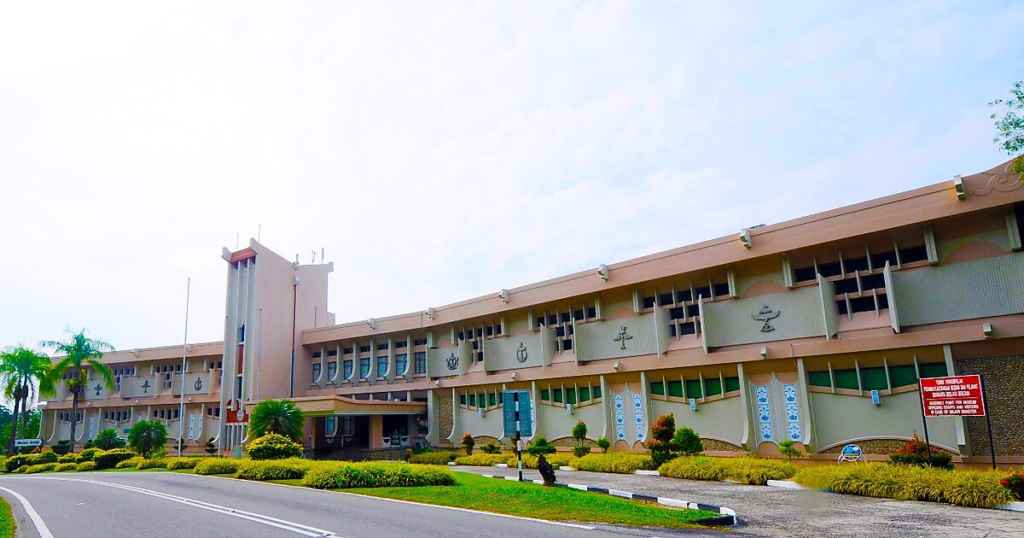
The Brunei Museum, located in Kota Batu, offers a comprehensive look into the country’s history, culture, and natural heritage. The museum’s exhibits include archaeological artifacts, traditional handicrafts, and displays on Brunei’s oil and gas industry. The Islamic Art Gallery is particularly noteworthy, featuring an impressive collection of manuscripts, calligraphy, and artifacts from the Islamic world.
6. Tasek Lama Recreational Park

Tasek Lama Recreational Park is a popular destination for both locals and tourists seeking a peaceful retreat within the city. The park features well-maintained trails, a waterfall, and a natural lake, making it ideal for hiking, jogging, and picnicking. The observation tower provides panoramic views of Bandar Seri Begawan, and the park’s lush greenery offers a serene escape from urban life.
7. Jame’ Asr Hassanil Bolkiah Mosque

Jame’ Asr Hassanil Bolkiah Mosque is the largest mosque in Brunei, built to commemorate the 25th anniversary of Sultan Hassanal Bolkiah’s reign. The mosque is an architectural masterpiece, with 29 golden domes representing the 29th Sultan of Brunei. The beautifully manicured gardens, intricate tile work, and opulent interiors make it a must-visit destination for those interested in Islamic architecture and culture.
8. Royal Regalia Museum

The Royal Regalia Museum, located in Bandar Seri Begawan, offers a fascinating insight into the life and reign of Sultan Hassanal Bolkiah. The museum houses an extensive collection of royal artifacts, including ceremonial regalia, gifts from foreign dignitaries, and replicas of the Sultan’s coronation procession. The exhibits provide a glimpse into the opulent lifestyle of the Bruneian monarchy and the country’s rich cultural heritage.
9. Muara Beach

Muara Beach, located near the capital, is a favorite spot for picnics, water activities, and relaxation. The beach’s soft sandy shores, clear blue waters, and serene atmosphere make it an ideal destination for a day out with family and friends. Facilities such as picnic areas, barbecue pits, and playgrounds add to the beach’s appeal, making it a popular destination for both locals and tourists.
10. Tamu Kianggeh Market

Tamu Kianggeh Market is a bustling open-air market in Bandar Seri Begawan, offering a vibrant glimpse into Brunei’s local culture and cuisine. The market features a wide variety of stalls selling fresh produce, traditional snacks, handmade crafts, and everyday essentials. It’s an excellent place to sample local delicacies such as nasi katok, ambuyat, and a variety of tropical fruits. The lively atmosphere and friendly vendors make it a memorable experience for visitors.
Economic Prosperity
Brunei’s economy is primarily driven by its abundant oil and gas reserves, which have made it one of the wealthiest nations in the world. The discovery of oil in the 1920s transformed Brunei from a small, agrarian society into a prosperous modern state. Today, the oil and gas industry accounts for the majority of the country’s GDP and government revenue.
The Brunei Investment Agency, a sovereign wealth fund established in 1983, plays a crucial role in managing the country’s wealth. The agency’s investments span a wide range of sectors, including real estate, technology, and finance, ensuring a steady stream of income for the nation.
Despite its reliance on hydrocarbons, Brunei is actively seeking to diversify its economy. The government has identified key sectors for development, such as tourism, halal food production, and financial services. Initiatives like the Brunei Vision 2035 aim to transform the country into a dynamic and sustainable economy by fostering innovation, enhancing education, and improving infrastructure.
Education and Healthcare
Brunei places a strong emphasis on education and healthcare, recognizing their importance in building a prosperous society. The government provides free education at all levels, from primary school to university, ensuring that every citizen has access to quality learning opportunities. The Universiti Brunei Darussalam (UBD), the country’s premier institution of higher learning, offers a wide range of programs and has established partnerships with universities worldwide.
Healthcare in Brunei is also of a high standard, with the government providing free medical services to its citizens. The Ministry of Health oversees a network of hospitals, clinics, and specialized centers that deliver comprehensive healthcare services. The Raja Isteri Pengiran Anak Saleha Hospital, the largest hospital in Brunei, is equipped with state-of-the-art facilities and offers advanced medical treatments.
Culinary Delights
Brunei’s cuisine is a reflection of its diverse cultural heritage, with influences from Malay, Chinese, Indian, and indigenous traditions. The country’s culinary scene is characterized by the use of fresh ingredients, aromatic spices, and a harmonious blend of flavors.
One of the most popular dishes in Brunei is nasi lemak, a fragrant rice dish cooked in coconut milk and served with a variety of accompaniments, such as fried anchovies, peanuts, boiled eggs, and sambal (spicy chili paste). Another favorite is ambuyat, a unique dish made from the sago palm tree. Ambuyat has a sticky, glue-like texture and is usually eaten with a variety of side dishes and dips.
Seafood lovers will find plenty to savor in Brunei. The country’s coastal location ensures a steady supply of fresh fish, prawns, crabs, and other seafood delicacies. The traditional Bruneian dish, ikan bakar (grilled fish), is a must-try, with its perfectly seasoned and chargrilled flavor.
Top Eight Most Famous Food Of Brunei
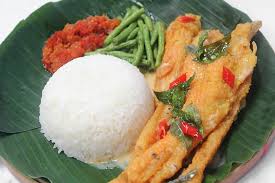
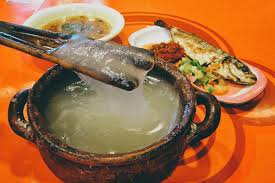
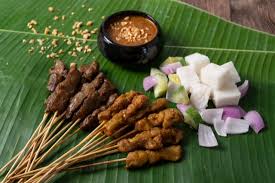

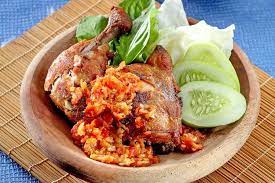



Festivals and Traditions
Brunei’s cultural calendar is filled with vibrant festivals and celebrations that reflect the country’s rich heritage and Islamic traditions. Hari Raya Aidilfitri, also known as Eid al-Fitr, is one of the most important festivals in Brunei. It marks the end of Ramadan, the Islamic holy month of fasting, and is celebrated with prayers, feasting, and the giving of alms to the less fortunate.
The Sultan’s birthday, celebrated on July 15th, is another significant event in Brunei. The occasion is marked by a series of official ceremonies, parades, and cultural performances. The highlight of the celebrations is the royal procession, where the Sultan and members of the royal family greet the public and receive well-wishes.
Tourism and Attractions
Brunei’s tourism industry, though still in its nascent stages, is steadily growing as more travelers discover the country’s unique attractions. The capital city, Bandar Seri Begawan, is a treasure trove of historical and cultural landmarks. The Istana Nurul Iman, the official residence of the Sultan, is one of the largest residential palaces in the world. Although not open to the public, the palace’s grandeur can be admired from the nearby river.
Kampong Ayer, the world’s largest water village, offers a glimpse into traditional Bruneian life. This network of stilt houses, connected by wooden walkways, is home to thousands of residents who live, work, and play on the water. Visitors can explore Kampong Ayer by boat and visit its museums, schools, and mosques.
For nature enthusiasts, Brunei’s lush rainforests and pristine national parks are a paradise waiting to be explored. The Bukit Shahbandar Forest Reserve, located just outside the capital, offers a network of hiking trails that wind through dense forests and provide stunning views of the surrounding landscape. The Sungai Liang Forest Recreation Park, with its well-maintained trails and picnic areas, is another popular destination for outdoor activities.
Sustainability and Conservation
Brunei’s commitment to sustainability and conservation is evident in its efforts to protect its natural resources and promote eco-friendly practices. The Heart of Borneo initiative, a tri-national conservation program involving Brunei, Malaysia, and Indonesia, aims to preserve the island’s biodiversity and promote sustainable development. Brunei’s participation in this initiative underscores its dedication to environmental stewardship.
The country’s focus on renewable energy is also gaining momentum. Solar power projects and initiatives to reduce carbon emissions
are being implemented to ensure a sustainable future. Brunei’s Green Protocol, introduced in 2020, outlines measures to promote energy efficiency, reduce waste, and enhance environmental awareness among its citizens.
Conclusion
Brunei, the enchanting abode of peace and prosperity, is a country that seamlessly blends tradition with modernity. Its rich cultural heritage, stunning natural beauty, and commitment to sustainability make it a unique destination in Southeast Asia. Whether exploring its historical landmarks, immersing in its vibrant culture, or marveling at its pristine landscapes, visitors to Brunei are sure to be captivated by its charm and hospitality.
let’s enjoy few years on earth with peace and happiness….✍🏼🙏

